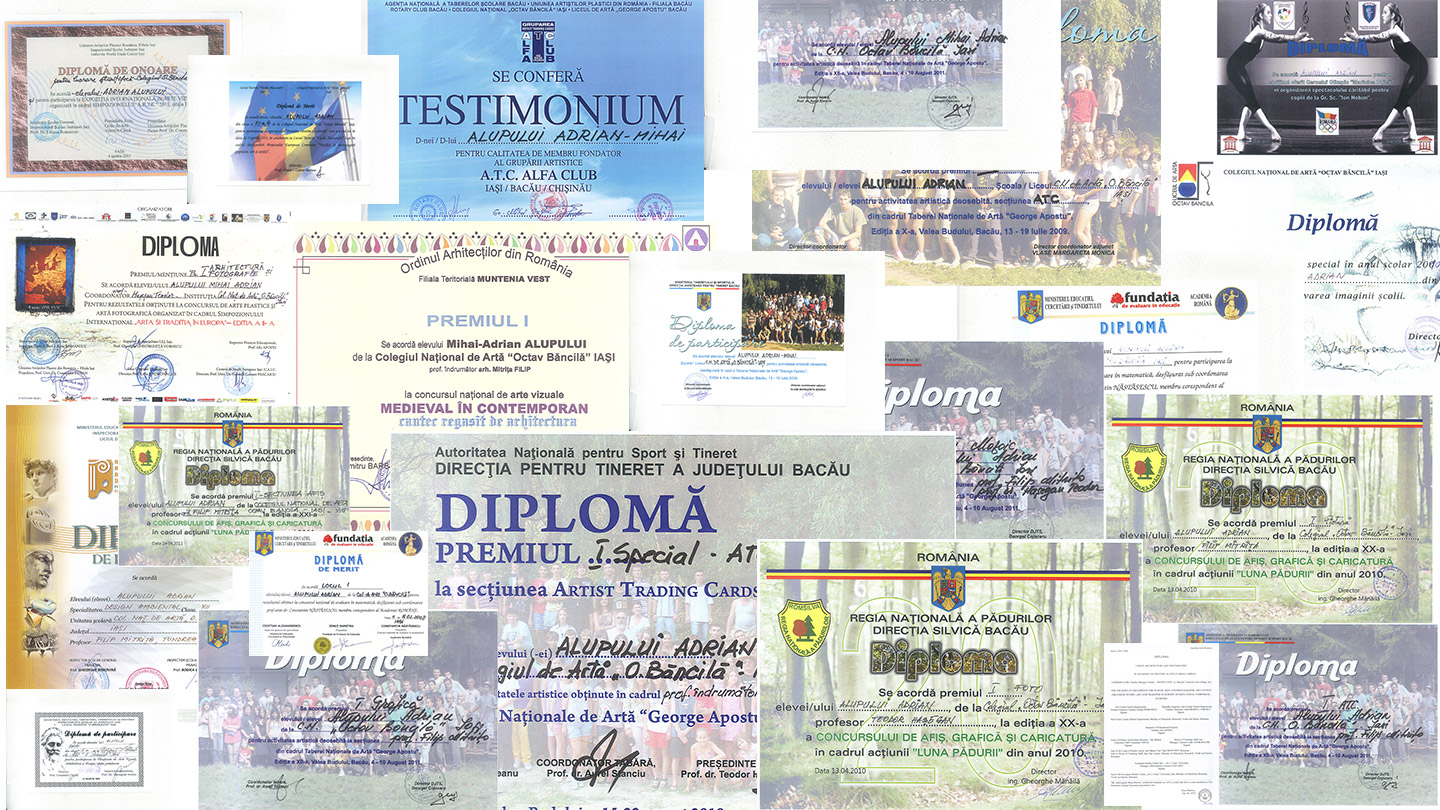Achievements & Awards
From winning over 25 competitions in architecture, design, graphics it can definitely be seen my motivation and passion. The question is How I am always succeeding in taking the first place? Would you want to hear what competitions I have won, what awards I have received, or are you just curious to hear what criteria I follow and why I do it?
Is it good to be competitive? Some say yes, others say no. Why? Well, that’s because being competitive can bring benefits but also can have some drawbacks. Competitive people are really ambitious, passionate, and confident. They are goal-oriented and they never give up. However the disadvantages will be that they live in constant stress, they are too perfectionists and this affects them time-management and sometimes the relations with other people. But what if there is a healthy way?
Don’t compete against others
It is good to be competitive and if you are not it is good to teach yourself how to be competitive in order to help you grow, develop and reach your goals. To make this a healthy habit you should not compete against others because it is not bringing success or happiness. Winning in this way doesn’t lead to self-improvement and in time it can appear a tendency to compare yourself with others.
The biggest competition is myself. I’m am always trying to exceed my potential, the goal beeing to improve myself continuosly.
People that compete with themselves are more successful than people that compete with others. They understand that winning is not about winning, about the competition, or about others. It is about giving everything you have to reach the goal.
Example: In my high school I was not winning any competitions because the architecture teacher did not offer me the chance to participate but instead she told me that I am not good enough and that there are other older students that are better. At that time something changed and I promised myself that I will work as hard as I can. I promised myself that I will give my best in everything I do. My goal was to learn as much as possible in order to become that ” older student” This became a healthy habit. When I understood that the competition is not important but is more important to develop myself and to learn as much as possible from everything I do – I start winning.
Appreciate the work of others
Appreciating the work that someone has done is a key point. Working in close relations with other people, focusing on learning from one another, helps at sharing knowledge and growing.
Learn along the journey
People like to speak about accomplishments but they are not as important as the training and knowledge accumulated as the goal is accomplished. Always try to focus on the process and learn as many new things as possible.
Focus on growing your skills
Focus on new skills you can build but do not forget to continue to improve areas that you are best at. Learn to see the value in each competition and see it more as WHAT NEW SKILLS CAN I GET
Be happy if you fail
Failing is good. Take full responsibility for your action. Failure and criticism are the best opportunity to grow, to become better to learn from your mistakes, and to promise yourself that the next time will be better. Accept the fact that there will always be someone better. Push yourself and learn from mistakes in order to become better.
3 Tips for winning architecture competitions:
1. Set your goal. Why this competition?
It is important to set the goals for why you want to take part in the competition. Don’t participate in competitions for the prize! Participate for what you can learn and for the development you can get by participating. Knowing your goals will keep you motivated and on a learning track.
2. Choose the right architecture competition
It is important to know your values and strengths in order to choose the right type of competition. In the beginning, I was participating in everything I had the chance. In time I have learned to prioritise my choices. Now I carefully select the competitions based on my goals. Competitions will require a great deal of commitment, energy, and time, therefore, is crucial of selecting the most important ones, in relation to you.
If you are not qualified enough should not be one of the requirements not to enter. I have always chosen the biggest competitions for the reason of growing and getting experience as quickly as possible. Most of the time I was not qualified but I still gave my best shot. Most of the time it was a success because with my non-qualification I actually have been considered innovative.
3. Exceed the requirements
After reading the competition brief carefully, use the guidelines as a starting point to get your creativity flowing but do not constrain yourself. Dream big but with logic and reason. Research as much as possible. Spend the time studying all scenarios within the project. Create as it would be for you.
Remember! Do not compete for winning but compete with yourself for growing!


